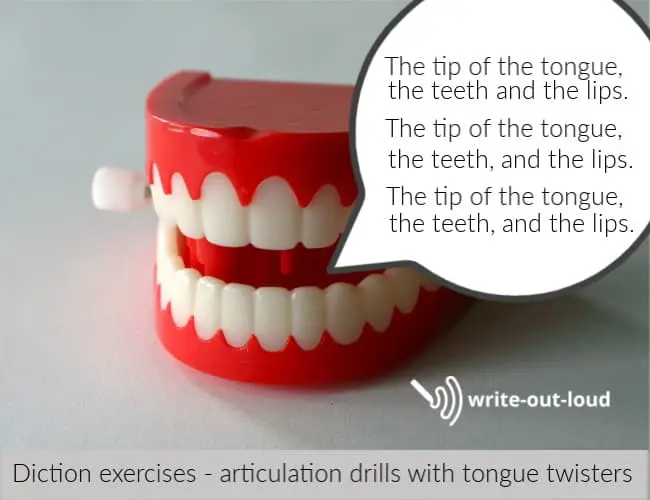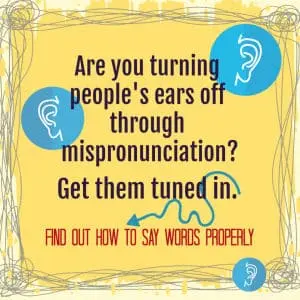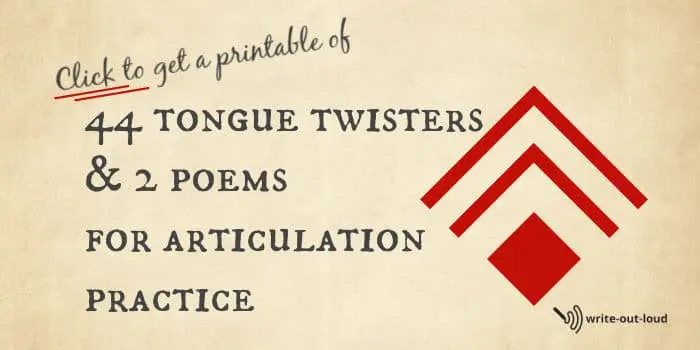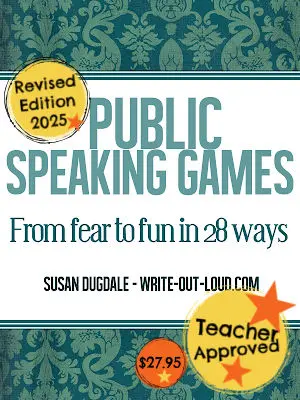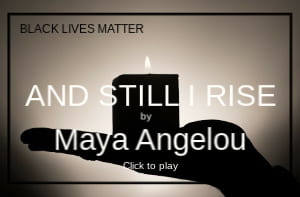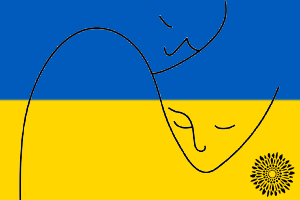- HOME ›
- Speech delivery ›
- Diction/articulation drills
Diction exercises to improve enunciation
- articulation drills to make sure they get your message. With a printable resource file.
By: Susan Dugdale
Why should you do diction exercises?
Because your speech content may be great, you may look fantastic, but unless your audience can easily UNDERSTAND what you're saying, your message is seriously compromised.
Diction exercises will help you learn how to enunciate well, to speak clearly.
An athlete does warm-ups and stretches before an event: a singer does likewise.
These drills using tongue twisters are the public speaker's warm up equivalent. They're an easy way to prepare and train you to speak cleanly, clearly and effectively.
What's on this page
Use the links to jump to:
- the benefits of tongue twister diction exercises, a definition of diction and more
- 4 tips for beginners to help you get the most out the exercises
- Tongue twisters for: B words (with audio), D words, F words, H words, J words, K words, L words, N & U words, P words, Q words, R words, S words, T words, V words.
- Two tricky twisters especially to exercise tongues
- An extra challenging work out: the Major General's patter song from Gilberts and Sullivan's light opera, The Pirates of Penzance. (With audio.)
- Get a printable pdf file of tongue twisters and poems
- Plosive? Fricative? Find out more about the sounds these tongue twisters are focused on.
- Other resources to help with speech delivery
The benefits of diction exercises or drills are:
- strengthening and stretching the facial and mouth muscles involved in speech,
- bringing to your attention habitual speech patterns which may be less than perfect, for instance slurring words together, or pronouncing 't's as if they were 'd's.
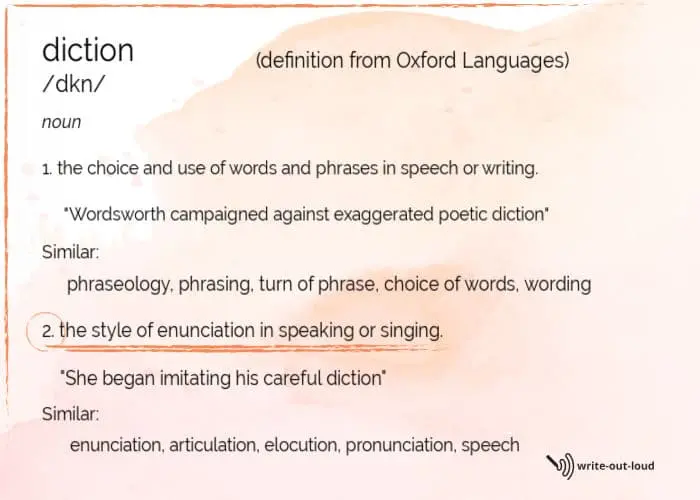
Good diction, (enunciation), is NOT about changing your accent or making you 'talk posh'.
It is about clarity, effective communication: making sure what you say is heard and comprehended correctly.
Seize the opportunity to talk *tosh
Seize the opportunity and talk *tosh, with aplomb! It will make a huge difference.
Tongue twisters have long been an integral part of a public speaker's tool kit. As well as being fun, they are extremely effective - a good way to get great diction fast.
Why are tongue twisters so silly?
If you're puzzled by them because English is your 2nd, 3rd or language, don't be. Please stop trying to make sense of them. Because more often than not, there is none to be had, and they are complete nonsense.
Or as my father would say, total twaddle. Tosh. Tripe. Gibberish and bunkum.
They're that way because they are made up of specific, often similar sounding, word combinations that have been put together purely for the different ways they make you work to say them clearly. They were never meant to make sense!
* tosh, twaddle, tripe, gibberish, and bunkum are synonyms for anything that does not make sense. It's illogical, silly or stupid.
Diction Exercises: Tips & Tongue Twisters
Tips for beginners
- The best way to start is slowly and carefully.
- Pay close attention to make sure the start and end of each word is crisp.
- Repeat the phrase, getting faster and faster while maintaining clear speech: that is ensuring the vowel and consonant sounds are distinctly heard. If you trip over words, stop and start again.
- As an additional exercise for improving your tongue's flexibility and agility add Mrs Tongue Does Her Housework to your practice session. These stretches will help enormously!
Diction Exercises for 'B' words:
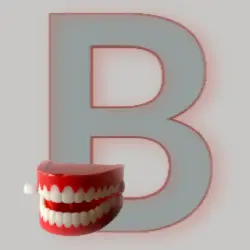
Betty bought a bit of butter,
but she found the butter bitter,
so Betty bought a bit of better butter to make the bitter butter better.
Blue blood, black blood.
Black bug, blue bug.
Bill had a billboard.
Bill also had a board bill.
The board bill bored Bill,
So Bill sold his billboard
And paid his board bill.
Then the board bill
No longer bored Bill,
But though he had no board bill,
Neither did he have his billboard!
(The sound 'B' is a voiced plosive. For more see: The Sounds of Spoken English)
Here's a small audio clip of me* saying those classic 'B' word tongue twisters: 'Betty Botter' and 'Bill had a billboard'. Click to play it.
*I'm a New Zealander. That's the foreign accent you're hearing.
For 'D' words try:

Two dozen double damask dinner napkins,
two dozen double damask dinner napkins...
Do drop in at the Dewdrop Inn,
do drop in at the Dewdrop Inn...
How much dew could a dewdrop drop if a dewdrop did drop dew?
Down the deep damp dark dank den,
down the deep damp dark dank den...
(The sound 'D', like 'B', is a voiced plosive. For more see: The Sounds of Spoken English)
Diction Exercises for 'F' words:
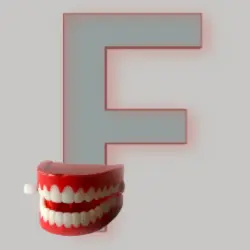
Four furious friends fought for the phone,
four furious friends fought for the phone...
Five flippant Frenchmen fly from France for fashions,
Five flippant Frenchmen fly from France for fashions...
(The 'F' sound is a fricative. For more see: The Sounds of Spoken English)
For 'H' words try:
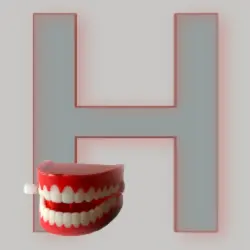
How was Harry hastened so hurriedly from the hunt?
How was Harry hastened so hurriedly from the hunt?...
In Hertford, Hereford and Hampshire hurricanes hardly ever happen, In Hertford, Hereford and Hampshire hurricanes hardly ever happen...
(The 'H' sound, like 'F' is also a fricative. For more see: The Sounds of Spoken English)
'J' word fun:

James just jostled Jean gently.
James just jostled Jean gently...
Jack the jailbird jacked a jeep.
Jack the jailbird jacked a jeep...
(About the sound 'J', it is an affricative. For more see: The Sounds of Spoken English)
Diction Exercises for 'K' words:
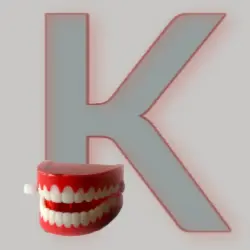
Kiss her quick, kiss her quicker, kiss her quickest.
Kiss her quick, kiss her quicker, kiss her quickest...
My cutlery cuts keenly and cleanly.
My cutlery cuts keenly and cleanly...
(The sound 'K' is a plosive. For more see: The Sounds of Spoken English)
'L' words:

Literally literary.
Literally literary...
Larry sent the latter a letter later.
Larry sent the latter a letter later...
Lucy lingered, looking longingly for her lost lap-dog.
Lucy lingered, looking longingly for her lost lap-dog...
('L' is liquid. For more see: The Sounds of Spoken English)
Diction Exercise for 'N' and 'U' sounds:
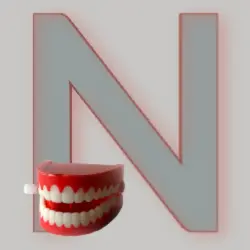 |
 |
You know New York,
You need New York,
You know you need unique New York.
(The sound 'Y' as in 'you', 'unique' and 'York' is a glide, 'N' as in 'know' is a nasal and the 'R' is liquid. For information see: The Sounds of Spoken English)
Diction Exercises for 'P' words:
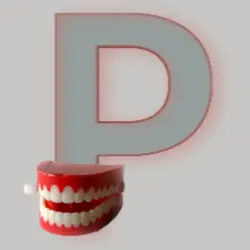
Peter piper picked a peck of pickled peppers.
If Peter piper picked a peck of pickled peppers,
Where's the peck of pickled peppers that Peter Piper picked?
Pearls, please, pretty Penelope,
Pretty Penelope, pretty Penelope,
Pearls, please, pretty Penelope,
Pretty Penelope Pring...
(The sound 'P' is a plosive. For more see: The Sounds of Spoken English)
For 'Q' words:
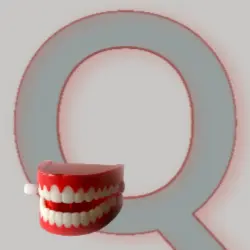
Quick kiss. Quicker kiss. Quickest kiss.
Quick kiss. Quicker kiss. Quickest kiss...
The quarrelsome Queen quaffed quickly and quietly.
The quarrelsome Queen quaffed quickly and quietly.
(The sound 'Q' is a plosive. For more information see The Sounds of Spoken English)
For 'R' words:
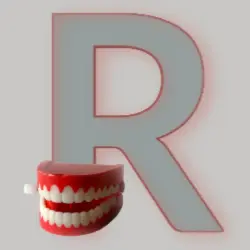
Round the rugged rocks the ragged rascal ran.
Round the rugged rocks the ragged rascal ran...
Reading and writing are richly rewarding.
Reading and writing are richly rewarding...
(The sound 'R' is a liquid. For more see: The Sounds of Spoken English)
Exercises for 'S' words:
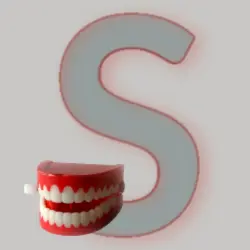
Six thick thistle sticks,
Six thick thistle sticks...
Theophilus Thistler, the thistle sifter, in sifting a sieve of unsifted thistles, thrust three thousand thistles through the thick of his thumb...
The shrewd shrew sold Sarah seven sliver fish slices ...
Sister Susie sat on the sea shore sewing shirts for sailors...
Moses supposes his toeses* are roses,
But Moses supposes erroneously,
For nobody's toeses are posies of roses,
As Moses supposes his toeses to be.
*Pronounce the word 'toeses' to rhyme with 'Moses'.
(The sound 'S' is a fricative. For more see: The Sounds of Spoken English)
For 'T' words:

Ten tame tadpoles tucked tightly in a thin tall tin.
Ten tame tadpoles tucked tightly in a thin tall tin...
Two toads, totally tired, trying to trot to Tewkesbury.
Two toads, totally tired, trying to trot to Tewkesbury.
(The sound 'T' is a plosive. For more see: The Sounds of Spoken English)
For 'V' words:
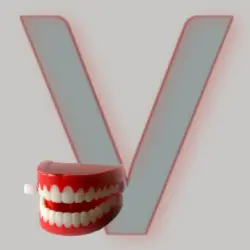
Vincent vowed vengeance very vehemently.
Vincent vowed vengeance very vehemently...
Vera valued the valley violets.
Vera valued the valley violets...
(The sound 'V' is a fricative. For more see: The Sounds of Spoken English)
And lastly, two tricky tongue exercises
Red leather, yellow leather...
Red lorry, yellow lorry...
(The sounds 'R' and 'L' are liquid. 'Y' is a glide. For more see: The Sounds of Spoken English)
And then, one more for good measure!
This comes from Gilbert and Sullivan's 1880 light opera "The Pirates of Penzance" .
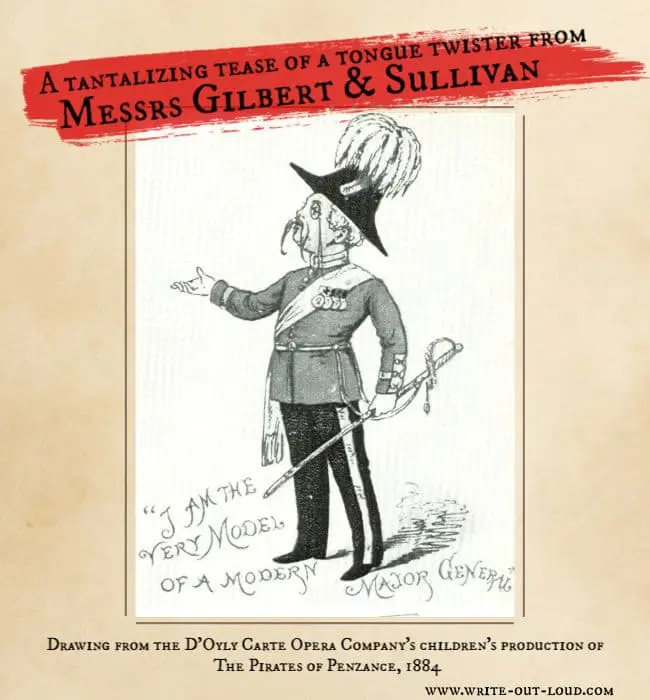
It's from the Major General's patter song and is guaranteed to make you work as it's the tongue's equivalent of a triathlon!
The lyrics include many difficult combinations, a wide range of individual sounds, that are impossible to say the right way unless you articulate clearly.
Have fun with this excerpt!*
(I had a play with it too. You can listen to my effort if you wish. You'll find it below the words.)I am the very model of modern Major General
'I am the very pattern of a modern Major-General;
I've information vegetable, animal, and mineral;
I know the Kings of England, and I quote the fights historical,
From Marathon to Waterloo, in order categorical;
I'm very well acquainted too with matters mathematical,
I understand equations, both simple and quadratical,
About binomial theorem I'm teeming with a lot o' news,
With many cheerful facts about the square of the hypotenuse.
I'm very good at integral and differential calculus,
I know the scientific names of beings animalculous,
In short, in matters vegetable, animal, and mineral,
I am the very model of a modern Major-General.'
Would you like to hear it?
This is me, Susan, having fun.
*Click this link to read the complete lyrics.
(The sounds are in 'I am the very model of a modern major general' are mixed. It contains plosives, fricatives, affricates, liquids and nasals. For more see: The Sounds of Spoken English)
Download a printable of tongue twisters
To get a printable pdf of all the tongue twisters on this page and eight more, plus 2 poems (About Socks by Dr. Suess and the lyrics of the first verse of The Major General's Song) click: 44 tongue twisters & 2 poems for articulation practice. (Please note the pdf file will open in a new tab.)
The sounds of spoken English
Just like any other language, the sounds of spoken English are formed through coordinating airflow, vocal fold vibration and the movement of the articulators inside our mouths: lips, tongue, teeth etc. It is delicate and complex process.
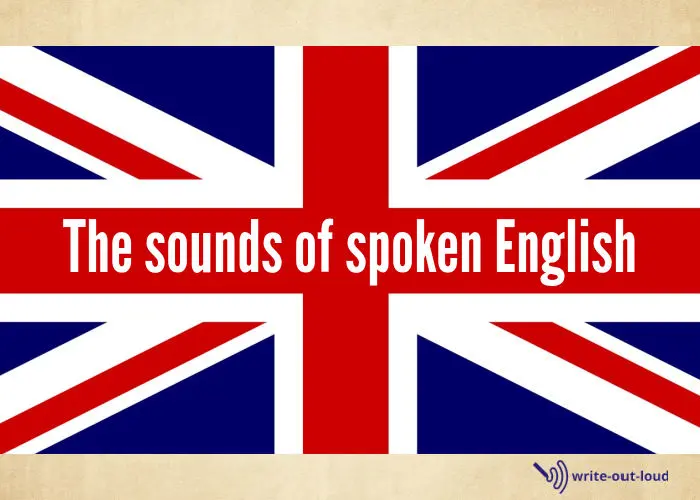
What
sound, or sounds, is each tongue twister targeting?
The italicized word or words in brackets next to each tongue twister is the name of the type(s) of sound it highlights. A brief explanation of each type is below. If you want more information, I’ve added a couple of excellent links which you’ll below the overview of 'Nasal' sounds.
Plosives
Plosives, also known as stops, are sounds formed by blocking the airflow in the mouth and releasing it quickly to create a 'burst' effect. There are two types:
- voiceless
plosives:
with
no
vibration in the vocal cords. Examples:
/p/ as in 'pot'
/t/ as in 'top'
/k/ as in 'cat' - voiced
plosives: with
vibration you can
feel in the
vocal
cords. Examples:
/b/ as in 'bit'
/d/ as in 'dig'
/g/ as in 'go'
To feel the difference between an unvoiced and a voiced plosive place your fingers gently on your throat as you say the sounds.
Fricatives
Fricatives take their name from the friction created when air is passed through a narrow gap in the mouth. They are two forms of them.
- unvoiced fricatives:
with no vibration in the vocal cords. Examples:
- /f/ as in 'fun', 'fume', 'father', and because of our strange English spelling, at the end of words like tough, rough or laugh where the 'gh' letter combination is pronounced as 'f'.
- /th/ as in 'think', 'thank', 'thin', or at the end of a word like 'both'.
- /s/ as in 'sun', 'sink', 'silly', 'snap', and in words like 'city' and 'cite' because the 'c' is sounded exactly the same way as an 's'. It's also at the end of words, for example: 'kiss', 'kisses' 'hiss', 'hisses', 'miss', 'misses'.
-/sh/ as in 'ship', 'she', 'shiver' and the ends of words like 'push', 'hush' and 'bush'. -
voiced fricatives:
with vibration in the vocal cords.
Examples:
-/v/ as in 'vivid', 'van', 'save'. (It is a buzzing sound. Place your fingers on your throat you'll feel it.)
- hard 'th' as in 'that', 'this', 'father', 'mother'. The tip of the tongue is placed between the teeth and the vocal cords vibrate at the same as the air flows through the gap.
-/z/ as in 'zoo', 'zoom', 'buzz', 'fuzz'.
Liquid consonants
There are two: 'L' and 'R'. Both have a partial airflow obstruction, allowing their sound to flow smoothly into, and blend with, the sounds around them. They are called liquid because of their fluidity and adaptability. Both are voiced and can be sustained.
- 'L' examples at the beginnings of words: 'light', 'love', 'lose', 'look', 'little'...
- 'L' in the middle of words: 'yellow', 'mellow', 'hello', 'fellow'...
- 'L' at the ends of words: 'call', 'pool', 'yell', 'shell', 'school'...
- 'R' examples at the beginning of words: 'roar', 'run', 'rag', 'right', 'rave'...
- 'R' in the middle of words: 'carrot', 'sorry', 'worry', 'borrow', 'sorrow', 'hurry'...
- 'R' at the ends of words: 'door', 'floor', 'ear', 'air', 'fair', 'tear', 'fear', 'dear'...
To practice, focus on pairs of words that differ only by 'L' and 'R', such as:
- light/right
- fly/fry
- pool/poor
For more see: Minimal Pair /l/ and /r/ | Learn English
Affricatives
Affricates seamlessly combine a plosive sound (a burst of air) with a fricative sound (a hiss of friction).
There are two of them.
- 'ch' You’ll hear it in the beginning of words like 'choose', 'watch', 'chop', 'chat' and 'cheese' as well as at the end of words like 'leech', 'beach', 'speech', and 'reach'. It's also in words containing 'tch'. For example: 'witch', 'match', 'batch', 'switch', 'pitcher'...
- 'j' as in 'jack', 'joy', 'judge', 'jelly', 'jolly', 'jumper'. It’s also heard in words containing ‘dge’. For example: 'badge', 'fudge', 'edge', 'budge', 'budget', 'fidget' 'smudge'...
Glides
Glides
are consonant sounds
that are very close to vowel sounds. The tongue glides
quickly from one position to another without creating friction or a
full stop of airflow. There are two main glides in English.
- /j/ as in 'yes' (the sound made by the 'y'), 'you', 'young', 'yard', 'yellow'...
- /w/ as in 'we', 'water', 'wonder', 'wish', 'win', 'twin', 'waiter'...
Nasals
Nasals are sounds made by passing air through the nose. You will feel their vibration as you say them. There are three: 'm', 'n', and 'ng'
- 'm' as in 'mother', 'money', 'murder', 'murmur', 'matter', 'come', 'comment', 'time', 'summer', 'drum'...
- 'n' as 'none', 'nonsense', 'sun', 'fun', 'stun', 'nothing', 'new', 'need', 'nibble', 'nimble', 'honey', 'funny'...
- 'ng' as in 'ring', 'sing', 'string', 'long', 'strong', 'bongo', 'bang', 'tang', 'tangle', 'flung', 'bung', 'stung', 'gnaw', 'ignore'...
Additional resources to help with spoken English
- BBC Learning English - Learn English pronunciation - a comprehensive series of lessons/episodes covering the sounds of English
- Place Manner Voice Chart | The Speech Guide - a practical guide showing where and how a sound is made and whether it is voiced or not.
For more on speech delivery & vocal variety
Click the link for more on:
- developing vocal variety (particularly important if you're a Monotone Martha or Martin'),
- using flexible speech rates (great for slowing a motor-mouth),
- the secrets of using silence well: how to uses pauses,
- breathing exercises to effectively overcome the anxiety of public speaking while strengthening your lung power,
- what your body language is saying, often without you realizing it!
And then of course there's public speaking games!
Maybe you are looking for good public speaking games to help develop confidence, creativity, spontaneity and fluency?
These 10 activities are proven, effective and fun. Use them with small or large groups.
And if you lead a public speaking group and you're always on the look out for activities...
You'll love my ebook!
28 public speaking games (with many more variations and extensions), full instructions, PLUS printable topic, tongue twister, poem and image sheets.
A complete one-stop-select-print-go public speaking resource for busy people.
Take a peek - find out more >>
Use the contact form and I'll get back to you as soon as I can. Thanks. ☺
And if you have any favorite articulation exercises, please share them. I'll gladly add more to the page!
